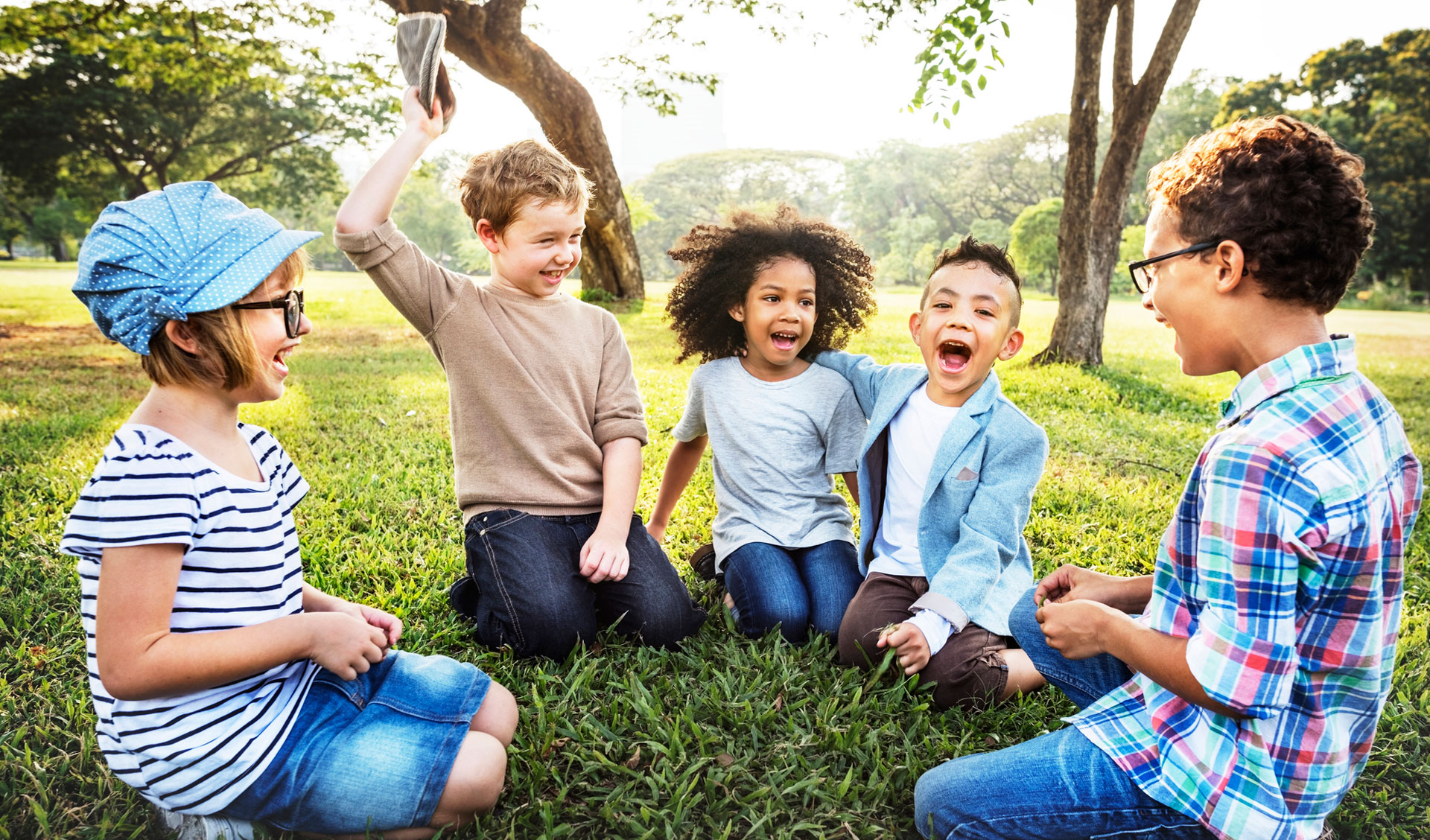How Children Develop Friendships

Children’s friendships reflect not only their age and developmental level but also their individual temperaments and personalities. Some children are very social and want lots of friends, while others are happier with a few close friends. Both are okay.
As parents, it’s important to separate our feelings from those of our children. An extroverted parent might worry, for example, if their child prefers just one or two friends. As long as your child feels good about their friendships, there’s usually no cause for concern.
Learn more about how children develop friendships at each age and stage and find tips on nurturing healthy social-emotional growth.
Infants and Toddlers
Infants learn about the world through their senses and enjoy tactile experiences like exploring water or sand. They stack toys to watch them fall, pound objects together to make noise, and open cupboard doors to find out what’s inside.
At this age, children don’t have the language or social-emotional skills to engage in complex play with other children, but they are learning about human relationships. Even very young infants can learn caring behaviours and have been observed responding to another infant’s distress. In group childcare settings, infants and toddlers often form bonds, yet they generally play side-by-side (parallel play) rather than together.
How to help your infant or toddler develop social-emotional skills:
- Ensure that interactions, including those with caregivers, are gentle and responsive. When infants’ needs are met quickly, they learn to trust the world and they want to engage with it.
- Model basic social skills, such as sharing or saying hello. Don’t expect infants and toddlers to follow suit necessarily but know that they are learning from your example.
Early Preschool (Threes)
As two-year-olds and young preschoolers develop language, play becomes more involved and interactive. Friendships can spring up over shared interests like building ramps together with blocks or scrambling over a climbing structure.
How to help your preschooler make friends:
- Schedule play dates with other parents but try to keep them brief—an hour or two is plenty. Have a few play date activities in mind ahead of time, such as playing with play dough or going for a nature walk. Children can often entertain themselves, but it’s nice to have an idea or two up your sleeve.
- Offer duplicates or put away any toys that will be difficult for your child to share. Remember that sharing is hard at this age. Conflicts are common but generally short-lived. Teach children how to share, but don’t insist on it.
- Ensure children aren’t hungry or tired.
- Support play and step in to help solve problems. Give your child clear ideas about what to say and do. For example, “You both want the toy, but your friend has it right now. You can wait for a turn, or we can find another toy. What would you like to do?”
Older Preschool (4S and 5S)
Around the age of four or five, children’s play becomes more complex. They enjoy pretend/role play (playing house or superheroes), board games, and active games. Some children like rough-and-tumble games. Other children may enjoy doing crafts together. Children are becoming more social at this age, and often prefer to play with other children of the same gender. They might also prefer certain personality types over others.
How to help your older preschooler make friends:
- This can be the age when children show a preference for certain friends. In a group setting, teach your child to be aware of others who might feel left out, and to be kind and friendly to everyone. Help your child understand that they don’t have to be best friends with everyone, but they can be kind and inclusive.
- Continue to help your child develop social skills. Teach them how to say hello, how to share, and how to take turns. Some children seem to automatically master these skills—others need more direct teaching.
- Plan some structured activities and invite a few children/families over. Do some crafts, watch a movie, start a book club, or go play at a park playground. Having other children in your home lets you see how your child interacts with others and allows you to offer gentle support when necessary. Keep a supply of snacks on hand, as well as fun, effortless activities at the ready.
Primary School
At this age, children still form friendships around activities and common interests. Active playground games, such as, “hide and seek,” are nice for breaking the ice because they’re fun, engaging, and non-intimidating. Encourage your child’s social interaction at school, too. Get to know other families and plan get-togethers with them. Team sports and after-school clubs offer other opportunities for your child to make friends.
How to help your primary-age child make friends:
- One-on-one play dates generally work better than large groups, especially for more introverted children. Avoid situations with three children unless they’re all very good friends. Otherwise, one child almost inevitably gets left out.
- Children don’t always intuitively know how to make friendships. Encourage your child to look around at school for other children who might be new, alone, or in need of a friend. Tell your child to ask questions to get a conversation going.
- Continue to make your child’s friends welcome in your home.
Remember, young children develop social-emotional skills over time, and some children are naturally more socially aware than others. Observe your child to understand what they need and desire from friendships. Keep expectations realistic, and offer gentle, graduated support.





